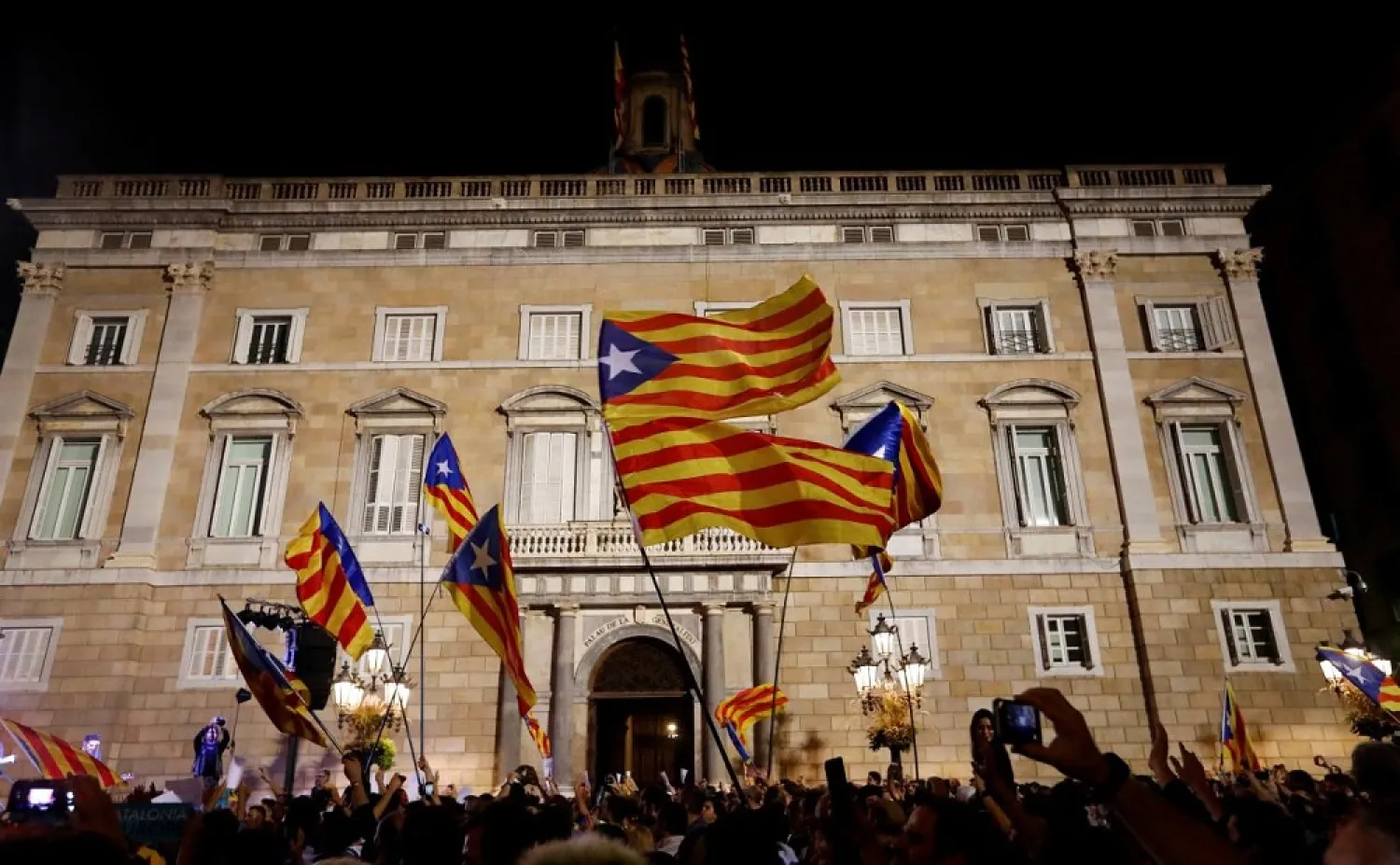Catalonia will vote for a new administration on Thursday in a close battle between pro-independence and anti-unity camps.
Many hope the elections will resolve Spain’s worst crisis in decades after the region declared independence leading Madrid to sack local leaders.
With opinion polls suggesting that more than 20 percent of the region's 5.5 million-strong electorate were undecided about who to support in Thursday's election, the final campaign rallies set out clear battle lines.
The likely outcome is a hung parliament and many weeks of wrangling to form a new regional government.
In the separatist heartland of rural Catalonia, fireman Josep Sales said he hopes the results will endorse the result of an October 1 illegal referendum on independence from Spain and lead to the creation of a republic.
“If we get a majority, something will have to be done. And if the politicians don’t do it, the people will unite,” he said, speaking from the town fire station where many of the red fire engines bear the slogan “Hello Democracy”.
“If we have to bring the country to a standstill, so be it,” said the 45-year-old, who plans to vote for Carles Puigdemont, the sacked Catalan head who is campaigning for election from self-imposed exile in Belgium.
He vowed to return to Catalonia if he's re-elected. He depicted the vote as a showdown with Spain's conservative Prime Minister Mariano Rajoy, who removed Puigdemont's government from office to block Catalan independence.
"This time is not about who wins this election, it's about whether the country wins or Rajoy does," Puigdemont said in a video address streamed live from the Belgian capital to supporters back home.
Ciutadans (Citizens) party leader Ines Arrimadas, the leading regional presidential candidate opposing independence, said she would bury the region's secession ambitions if she wins Thursday's election.
"On Thursday, we are going to awaken from this nightmare of the independence push," Arrimadas, a 34-year-old lawyer, told a crowd of supporters.
Marta Rovira, the No. 2 candidate for the left-wing republican ERC party in Catalonia, said her goal is to breathe fresh life into the region's secession bid. The ERC is roughly level with Ciutadans in topping pre-election opinion polls.
The uncertainty generated by the independence drive has hurt hotel occupancy rates in the region, dented consumer sales and caused more than 3,000 businesses to move their registered headquarters from Catalonia.
It has also bitterly divided Catalan society between those who support independence and those who favor unity with Spain.
“Everyone is eager for the election and to see how it turns out, because nothing is clear at the moment,” said 34-year-old flamenco teacher Maria Gonzalez, who lives in Cerdanyola del Valles, an industrial suburb of Barcelona.
“The feeling on the streets is not comfortable,” says Gonzalez, the daughter of migrants from other parts of Spain who moved to Catalonia decades ago and who plans to vote for pro-unity party Ciudadanos (“Citizens”). “There’s a hidden tension.”
The Spanish government called the election when it seized control of Catalonia, dismissed its government and dissolved the regional parliament following a declaration of independence by separatist lawmakers there on October 27. It then called Thursday's vote.









